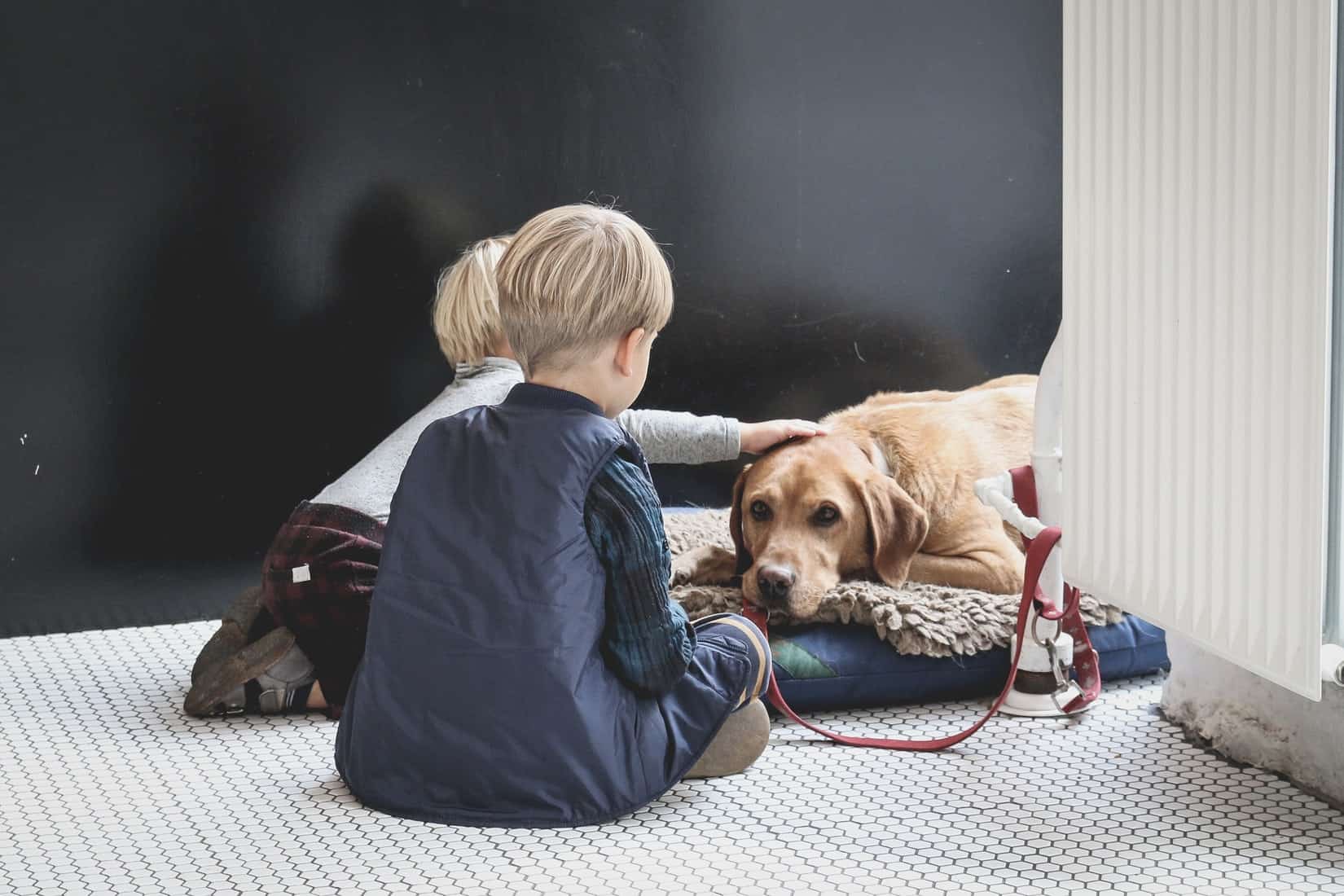AD | Collaborative post
Owning a dog is a big responsibility and as they get older, you will need to make certain changes in order to ensure they are comfortable and happy in their environment. If you have young children, loud and boisterous behaviour can be difficult for a senior dog to deal with, especially if they’re suffering from an age-related health condition that affects their day to day life. Your elderly pet has been a faithful friend and deserves peace, love and respect during their golden years. The best way forward is to make a change, so here is how to teach your kids how to love and respect older dogs.
Let Them Help the Dog
Letting your children help you care for their senior pet will make them realise how the dog has changed and what you need to do to keep your dog healthy. If your dog has stiff joints, when you browse joint tablets for dogs, you will come across Yumove. These joint tablets for dogs help to support stiff joints and mobility in older dogs, and contain compounds that can help your dog feel more comfortable. Letting them feed the dog the tablets and telling them how it will help their friend will keep your kids aware of their dog’s condition and will push them to make other changes, like keeping the floors clear.
Understand Important Boundaries
Dogs find it very threatening when others get up close to their face. When dogs show each other their teeth, this means that they are being aggressive, so if a child smiles and cuddles a dog, then they may read the signs wrong and try to defend themselves. As dogs get older, they’ll become more fragile, which can make them more sensitive than normal. This makes it even more important to teach your children boundaries and how to be gentle with a delicate elderly dog. Teach them how to love a dog correctly, such as avoiding cuddles, petting their back and letting the dog come to you.
Leave the Dog Food Alone
Whether your dog is or isn’t protective about their food, you should teach your children to keep their distance from the dog food bowl. When dogs get older, their eating habits may change and they may struggle to eat like they used to. If your children make the dog feel nervous during meal times, then this could enhance the issue, which could lead to complications in your old dog’s health. Your old dog should be able to eat in peace, so you should feed them in a quiet area where they feel comfortable and relaxed. When the dog is eating, your kids should not be allowed in this area without permission.
Encourage Proactive Play
Even as your dog gets older, play sessions are a great way to stimulate their minds and keep their bodies active. When your child plays with their dog, it will improve their bond and relationship. The best games for a dog and child to play together is a retrieving game, but you should set a time limit, so your dog doesn’t strain his or herself. Training your dog on how to drop the ball will protect your kids’ fingers from an accidental chomp. No matter how old your dog is, children should never wrestle with, play tug of war with or tease their dog, because this can lead to injuries to your child or senior pet.
Learn About Age Related Changes
As mentioned previously, letting your children help their dog by giving them health supplements and taking care of them will make your kids more aware of the condition of their older pet. Some children may become impatient or frustrated with their dog as it grows old, because they won’t play as much as they used to, they will want to sleep more, and they will want to spend more time alone. To help reduce this frustration and teach your kids how to love and respect their elderly pet, you should help them learn about age related changes by teaching them how your dog’s body is starting to change.
Create Safe Places
Creating safe places in your home will make your dog and children more at ease. If your child has always been a bit nervous around your dog, then creating an area that they can access (but your dog can’t), will reduce the risk of them getting stressed, scared or loud around your senior pet, which will make everyone feel more comfortable. The same rules apply to your dog. If you can tell that they want to get away from the children and need their own space, you should create a safe place for them. The children shouldn’t be allowed to go into this area if the dog is there, unless they get your permission.
It will take time for your children to fully understand the changes their dog is going through and the importance of treating their pet differently. By improving their behaviour, you will make your elderly dog’s life much better.

